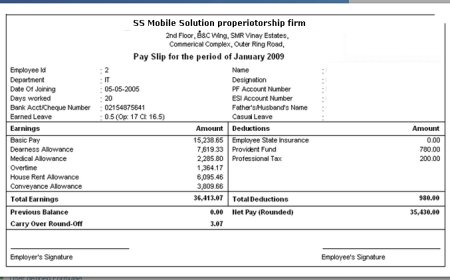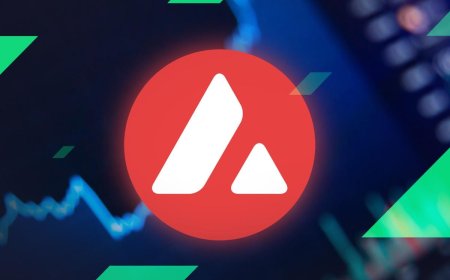Top 10 Must-Have Features for Modern IDO Launchpad Platforms
In this blog, we’ll explore the core features every successful IDO launchpad must include, drawing from current best practices and emerging trends in decentralized finance.

The Web3 ecosystem is rapidly reshaping how projects raise capital and engage communities. Initial DEX Offerings (IDOs) have emerged as a powerful and decentralized method for launching tokens, bypassing the limitations of traditional fundraising and centralized exchanges. As the demand for IDO platforms grows in 2025, so does the expectation for feature-rich, secure, and user-friendly environments where both investors and projects can thrive. For any team building or managing an IDO launchpad, integrating key features that support scalability, transparency, and accessibility is not optionalits essential.
Modern IDO launchpad platforms need to do more than just host token sales. They must foster trust, automate complex processes, ensure compliance, and support a growing number of blockchain networks. In this blog, well explore the core features every successful IDO launchpad must include, drawing from current best practices and emerging trends in decentralized finance.
Seamless Project Onboarding and Vetting Process
An effective IDO launchpad should make it easy for promising projects to apply and be evaluated for listing. This starts with a structured onboarding system that guides projects through submission, due diligence, and approval. Manual vetting or DAO-based community voting can be integrated to assess factors like tokenomics, smart contract security, use case potential, and founder credibility.
Trust is everything in DeFi, especially when users are investing in early-stage tokens. Launchpads that incorporate a rigorous vetting process, background checks, and transparent listing criteria not only filter out bad actors but also build credibility among investors. Automating parts of the onboarding processwhile keeping strategic checkpoints for human reviewstrikes the right balance between speed and integrity.
Multi-Chain and Cross-Chain Compatibility
As blockchain interoperability becomes a norm rather than a luxury, IDO launchpads must be designed to operate across multiple chains. Supporting major EVM-compatible networks like Ethereum, Binance Smart Chain, Polygon, Avalanche, and Arbitrum is just the starting point. Advanced platforms are also integrating with Layer-2 solutions and non-EVM chains like Solana or Sui.
Multi-chain support gives projects the freedom to launch on the blockchain that best suits their ecosystem. It also allows users to participate in IDOs using a variety of tokens across networks. Seamless cross-chain token swaps, liquidity bridging, and wallet integrations ensure the experience remains unified regardless of the underlying infrastructure.
Tiered Allocation Models for Fair Participation
In the early days of IDOs, token sales were often dominated by bots or large holders, excluding small investors. To correct this imbalance, modern launchpads implement tiered allocation systems based on staking levels, loyalty scores, or whitelisting achievements. These tiers help allocate token sale slots fairly, ensuring that early supporters and engaged community members get a chance to participate.
Tiered systems also serve as powerful incentives for long-term platform engagement. By staking native tokens or contributing liquidity, users can unlock better allocation tiers over time. This approach not only drives demand for the launchpads ecosystem token but also helps build a loyal and active user base.
Built-In KYC/AML Compliance Options
As the regulatory environment around crypto continues to evolve, compliance is becoming a non-negotiable featureespecially for platforms that want to work with institutional partners or launch RWA and utility tokens. IDO platforms must offer built-in Know Your Customer (KYC) and Anti-Money Laundering (AML) integration, either directly or through third-party providers.
This ensures that only verified users can participate in token sales, helping platforms remain aligned with regional regulations. Importantly, these compliance checks must be implemented without compromising the decentralized ethos of Web3. Launchpads that achieve this balance give projects peace of mind while still offering users a smooth onboarding experience.
Token Vesting and Smart Contract Locking
One of the main concerns in early-stage token offerings is the risk of a sudden dump by private investors or team members, leading to price volatility and loss of trust. A robust IDO launchpad should offer customizable token vesting options that can be automatically enforced via smart contracts.
These contracts can lock up tokens for specific periods, gradually releasing them to investors, advisors, or the founding team based on predetermined schedules. Transparent vesting timelines help reinforce the projects long-term vision and reassure retail participants that no single party can manipulate the market post-launch.
Real-Time Analytics and Transparent Reporting
Transparency is critical in decentralized ecosystems. A modern IDO platform must offer real-time data dashboards that give both users and project teams full visibility into key metrics. This includes token sale progress, total raised funds, number of participants, average allocation per user, and remaining supply.
Providing transparent analytics not only strengthens investor confidence but also enables projects to adjust their marketing or outreach during live sales. Platforms with intuitive UI dashboards, on-chain verification tools, and easily accessible token metrics outperform those that leave users guessing.
Integrated Wallet Support and One-Click Participation
The user experience of joining an IDO should be frictionless. Integrated wallet support for MetaMask, WalletConnect, Trust Wallet, and other providers allows users to connect in seconds and participate in sales with minimal clicks. Advanced platforms even offer one-click token purchases where users can approve the transaction and complete their purchase in a single action.
Supporting multiple wallet types ensures accessibility for both DeFi-native users and newcomers. The fewer steps involved in the participation process, the more likely users are to engage with the platform and complete their transactions confidently.
Built-In Liquidity Provision and DEX Listing Tools
After a token sale ends, the next big milestone is listing the token on decentralized exchanges. A high-quality IDO launchpad should streamline this transition by offering automated liquidity pool creation and token pair listing on top DEXs like Uniswap, PancakeSwap, or SushiSwap.
Providing post-sale liquidity tooling ensures that investors can immediately trade their tokens, while projects benefit from controlled price discovery and deeper markets. Some platforms go even further by enabling time-locked liquidity or offering liquidity mining incentives to jumpstart community trading.
Decentralized Governance and DAO Integration
As decentralization remains a core value in Web3, integrating DAO features into the launchpads operation increases community engagement and platform transparency. Governance modules allow token holders to vote on future IDO listings, platform upgrades, treasury usage, or partnerships.
By empowering the community to co-own the direction of the launchpad, DAO functionality ensures that decisions are made with user interest at heart. It also builds an ecosystem where contributors have both economic and strategic incentives to grow the platform long-term.
Marketing, Whitelisting, and Community Tools
Beyond technology, a successful IDO launchpad must provide robust tools for community building and marketing. This includes whitelisting campaigns, social media integrations, email marketing automation, referral incentives, and partner promotion support. Effective pre-sale engagement can make or break a token launch.
Whitelisting tools should include customizable forms, eligibility scoring, bot protection, and automated selection processes. Community marketing integrations with platforms like Zealy, Galxe, or Discord bots help projects manage giveaways, AMAs, and ambassador programsall from a single dashboard.
The Role of Security in Safeguarding Capital and Reputation
Security underpins every layer of an IDO launchpad. From smart contract audits to front-end protection and treasury management, users must trust the platform with their funds and data. All IDO-related contracts, including sale, vesting, and staking contracts, must be thoroughly audited and published publicly.
In addition to technical audits, platforms must monitor transactions for anomalies and adopt best practices like multisig wallet governance, DDoS protection, and secure user session management. In the high-stakes world of crypto fundraising, even a minor security lapse can cause irreversible damage to the launchpads reputation.
Conclusion:
As the IDO landscape continues to evolve in 2025, launchpads must prioritize both innovation and reliability. The most successful platforms will be those that seamlessly combine compliance, usability, transparency, and decentralizationall while keeping the end-user experience simple and rewarding.
For Web3 founders, launching a token today is about much more than just writing a smart contract. Its about plugging into a robust ecosystem that supports project discovery, funding, governance, and growth. Likewise, developers and entrepreneurs building launchpads have an immense opportunity: by offering the right set of features, they can become the backbone of tomorrows decentralized economy.
Whether you're a crypto startup preparing for your first IDO or a tech team designing a new launchpad protocol, the key is clearbuild with users in mind, automate intelligently, and never compromise on transparency or security.







































